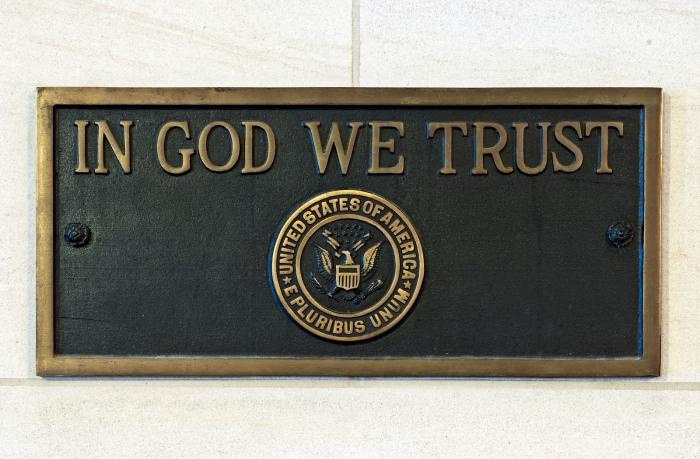Students returning to South Dakota schools in August will be greeted by the U.S. official national motto, “In God We Trust,” after a new state law came into force over the summer.
The law, passed back in March, compels all public schools to display “In God We Trust” in a prominent position in the school, in lettering at least 12 inches high.





